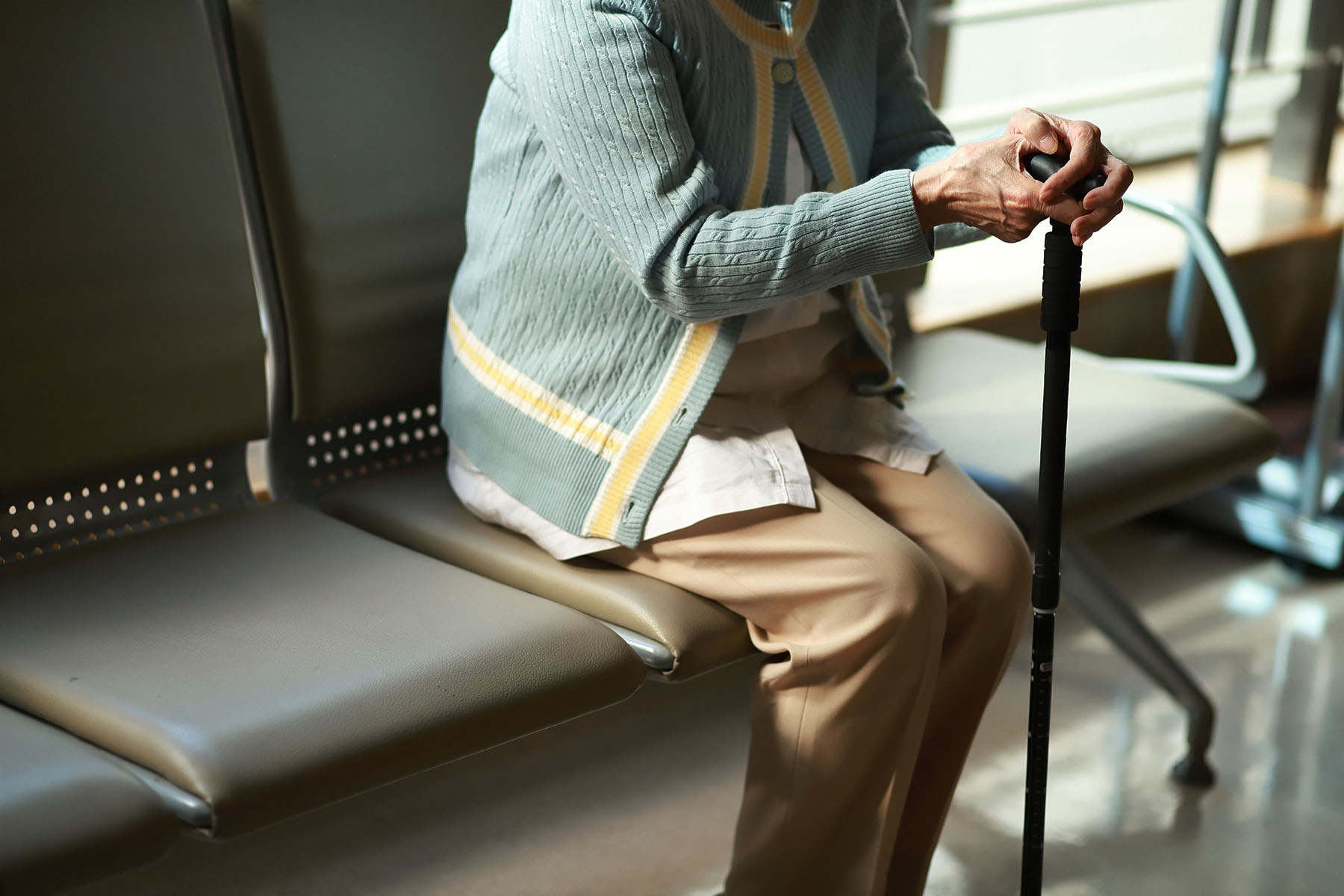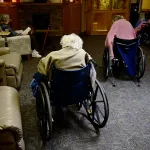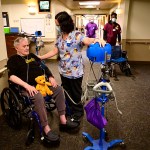The Biden administration finalized a rule on Monday to create a federal minimum staffing level for nursing homes, the biggest change to nursing home regulations since they were first established in the 1970s.
Vice President Kamala Harris announced the new rule at an event in the battleground state of Wisconsin. The event was held with SEIU, a union representing many long-term care workers both in and out of nursing homes. At the same event, Harris announced the finalization of a rule mandating that at least 80 percent of Medicaid payments for home care go to salaries for workers, in an attempt to boost their pay. The Biden administration first announced their intention to make the move last year, as part of a package of executive orders on caregiving.
“This is about dignity. This is about the dignity we, as a society, owe to those who care for the least of these. This is God’s work: To care for people you’ve never met before, you’re not related to. And you care for them as if they’re a member of your family. Everyone would want that for themselves or for a member of their family. Let’s recognize the gift these talented professionals give,” Harris said, addressing the care workers in the audience.
The final rule requires nursing homes to provide 3.48 staffing hours per resident per day and have a registered nurse on site at all times. Prior to the rule, there were no minimum staffing requirements for nursing homes at the federal level. The rule is largely similar to the earlier version proposed in September, but it will have more exceptions and a longer phase-in for rural nursing homes, which face more pronounced staffing challenges.
“There are relatively few rural nursing homes and those that are still in operation really struggle to find staff,” said David Grabowski, a professor of health policy at Harvard Medical School. “There are a lot of other places for individuals in those markets to work and you have a smaller supply of workers to draw from,” he told The 19th.
Grabowski praised the new rule. He also cautioned that this change, while promising, should be treated as a first step toward improving nursing home conditions.
“I think this is the most important nursing home reform in decades. Staff are the most important input into nursing home quality, and we need more staff in nursing homes. There are a lot of nursing homes that are grossly understaffed. This is an opportunity to raise the floor,” he said. “I think in some nursing homes around the country, it’s going to take a lot more than 3.48 hours per person, per resident, per day to improve quality. I think this is a great start, but I’m not certain that it’s all the way there.”
President Joe Biden first announced he would take on nursing home reform during his 2022 State of the Union address. The announcement received positive support from nursing home workers and the unions representing them and opposition from groups like the American Health Care Association and LeadingAge, which represent nursing home operators.
During a rally this month with care workers and their allies in Washington, D.C., Biden renewed his promise.
“In the coming weeks, we plan to release new rules to strengthen staffing standards in nursing homes, to get home care workers a bigger share of Medicaid payments. But I want to — but that’s not going to be enough. I want to do more, and we can do more,” he said.
The link between higher staffing levels and better health outcomes for nursing home residents is well established.
“You name the outcome and more staffing hours improves it. I’ll just start with the basics: better for quality of life. Lots of studies suggest residents are simply happier. They’re getting more attention when you have more staff,” Grabowski said. “But there are lots of clinical outcomes as well, like fewer pressure ulcers, less use of feeding tubes, more feeding by hand, less use of catheters … less use of antipsychotics. And then there are health care utilization measures: fewer transfers to the emergency room, fewer transfers to the hospital.”
Industry groups say that the new requirements will lead to facility closures, rising costs and a worsening staffing crisis. Labor groups and workers say that the new regulation will help residents be fed, bathed and cared for in a more timely and consistent manner, as well as prevent worker burnout. An unprecedented number of nursing home workers left the field during the COVID-19 pandemic.
The majority of nursing home workers are women, disproportionately women of color.
Shantonia Jackson, 54, works as a certified nursing assistant at a nursing home in Cicero, Ill., just west of Chicago. She is a member of SEIU. As a certified nursing assistant, she handles residents’ everyday needs.
“I brush their teeth, comb their hair, get them dressed, transfer them from their bed to their wheelchair, help them walk, feed them, have conversation with them. I’m the person that they can talk to when they need someone to talk to,” she told The 19th.
Jsackson began working in the nursing home industry in 1997 but left for a less physically demanding job in 2000 because she had a high-risk pregnancy. She returned in 2012.
“When my baby got old enough, I went back to what I was passionate about,” Jackson said.
Insufficient staffing weighs heavily on Jackson. She cares deeply, but it is impossible to give everyone the attention they need without enough staff. She said she has sometimes been responsible for caring for up to 25 people at once during her shifts.
“It hurts me when I can’t brush my resident’s teeth, and she’s had perfect teeth all her life. Now, they’re deteriorating, because I don’t have the time to brush her teeth. That type of thing bothers me. Or if I have a prestigious woman who has worked all her life. I can’t take the time to put her pearls on. Simple, simple tasks. Making sure residents eat hot food, not cold food,” she said.
Jackson feels that any national improvement in staffing requirements will help residents and workers.
“I should be able to do everything I was telling you — brush teeth, comb their hair, have conversations, tell stories. I should be able to make a person feel loved and wanted up until the day that they die. Right now, I’m fly-by-night. I see someone for five seconds. That’s not a way for no one to live. No one wants to be sitting in their feces waiting for me to come because I’ve got so many other people to change. People shouldn’t have to pay their taxes their whole lives and then be subject to living in those types of conditions,” Jackson said.







